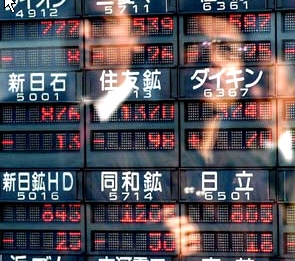Central banks in the West could learn from the Bank of Japan how to quell investor yield panics says Aegon Asset Management’s fixed income team.
With yields soaring in recent weeks the team believes Japan’s central bank makes for an interesting example of a policy maker able to keep markets in line without having to turbocharge its QE program.
“Unlike many other central banks, the Bank of Japan (BoJ) has thus far managed to keep volatility of Japanese yields low and without having to speed up its bond buying program,” says Sandra Holdsworth, Head of Global Rates – UK.
“Japanese investors are clearly well-trained by decades of central bank buying and know that it does not pay off to fight this central bank.”
Even after the announcement of the BoJ that it will allow the 10-year yield to deviate around 25 bps from its target of zero, Holdsworth says investors seem wary to test these limits.
“While the Reserve Bank of Australia had to increase its buying in the last few weeks to defend its yield target, the BoJ proves to be better at crowd control. To strengthen the message, the BoJ did announce it can implement its purchase program for ‘consecutive days,’ a message clearly designed to avoid the situation faced by the RBA.
“Overall, the BoJ meeting did not change the status quo in Japanese financial markets. Yields have remained low and the BoJ is willing and able to stick to its yield curve control for the 10-year rate. The yen has weakened due to the rising interest rate differential versus the dollar and this will continue to attract investors to use the yen as funding currency for higher yielding assets.”
On where Japanese investors may look for new opportunities as the BoJ shuns the Nikkei, Hendrik Tuch, Head of Fixed Income NL at Aegon Asset Management says the US bond market could prove attractive, but warns that this could prove to be a cap on Japanese equity returns in the long run.
“We can expect Japanese investors to allocate more money to the US bond market, especially after the start of their new accounting year in April. Japanese equity markets will have to digest the new message of the BoJ and investors will show a clear preference of the Topix versus the Nikkei,” says Tuch.
“While it continues to support the bond market, the BoJ is gradually stepping away from its equity purchases. Going forward, it will no longer buy Nikkei ETFs and instead focus on Topix ETFs, as the first index is too skewed towards a small number of companies. The BoJ has also dropped its target to buy about 6 trillion JPY (60 bn USD) and instead keep the option open to buy more with a maximum annual limit of 12 trillion JPY.
“In the last few months, it has already reduced its equity buying, but going forward we can only expect support if the equity market weakens. So the Kuroda-put is still there, but we will miss the previous continuous support of the BoJ, especially for the Nikkei index.
“Considering that the BoJ has amassed about 7% of the total Japanese stock market through its purchases, we should not underestimate the effect of a cap on this buying program on future Japanese equity returns.
“Due to its continuous control of the Japanese financial markets, the BoJ will need to buy fewer equities and bonds going forward, as it firmly keeps the option open to increase these programs if more support is needed.”





